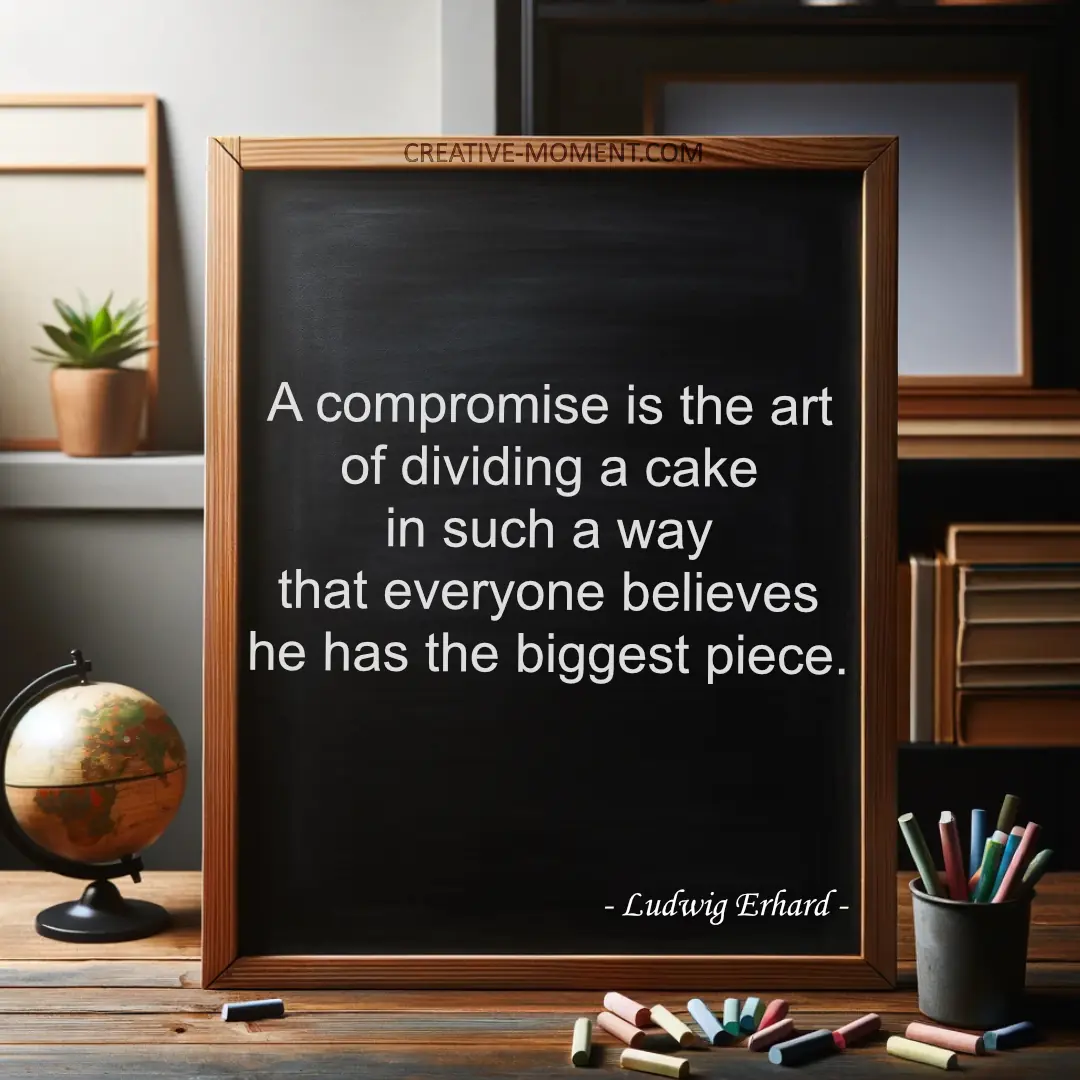Saying: A compromise is the art of dividing a cake in such a way that everyone believes he has the biggest piece
Info
- Title: A compromise is the art of dividing a cake in such a way that everyone believes he has the biggest piece
- Type: Sayings
- Category: Wisdom and Insights
- Print: Download as PDF for printing
Ludwig Erhard described a compromise as the art of dividing a cake in such a way that everyone believes they received the biggest piece. This highlights the psychological dimension behind successful negotiations. It's not the actual distribution that matters, but the perceived fairness. Especially in political or economic contexts, this perception becomes key to success.
Origin and Usage of the Saying
The saying comes from Ludwig Erhard, the Federal Minister of Economics in post-war West Germany and later Chancellor. Erhard was a strong proponent of the social market economy and known for his pointed remarks. The original quote “Ein Kompromiss ist die Kunst, einen Kuchen so zu teilen, dass jeder glaubt, das größte Stück bekommen zu haben” appears in numerous quotation collections. It reflects Erhard’s approach to mediation and is still seen as a concise definition of effective compromise. The quote has been cited in speeches, political analysis, and publications on negotiation.
Meaning and Interpretation of the Saying
A successful compromise does not depend solely on equal shares, but on the subjective satisfaction of all involved. When each party feels they have done well, constructive agreement is more likely—even if the outcome is objectively unequal.
Erhard’s cake metaphor illustrates this mechanism: it is less about precise portions than about the perception of fairness. The process is designed to ensure each side feels respected and valued, regardless of the actual result.
The quote thus emphasizes a key element of negotiation: the role of perception in acceptance and success. Creating compromise involves more than allocating content—it also requires building trust.
Whether in politics or everyday life, this approach proves valuable: a stable agreement often arises when no party feels like a loser—even if equality was not achieved.
The quote remains relevant today. It shows how psychological sensitivity can influence seemingly rational processes—and why diplomacy involves more than just division.

